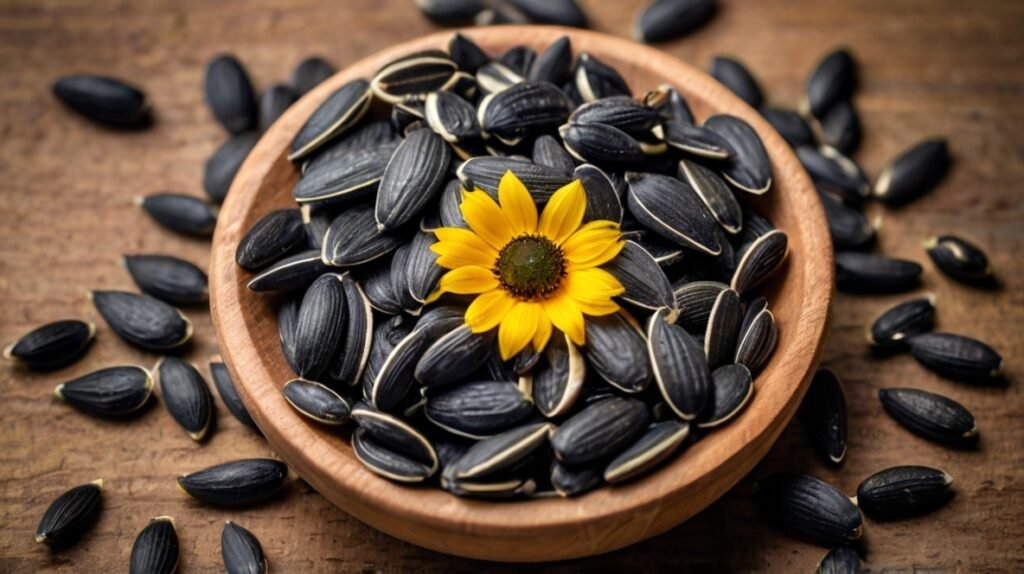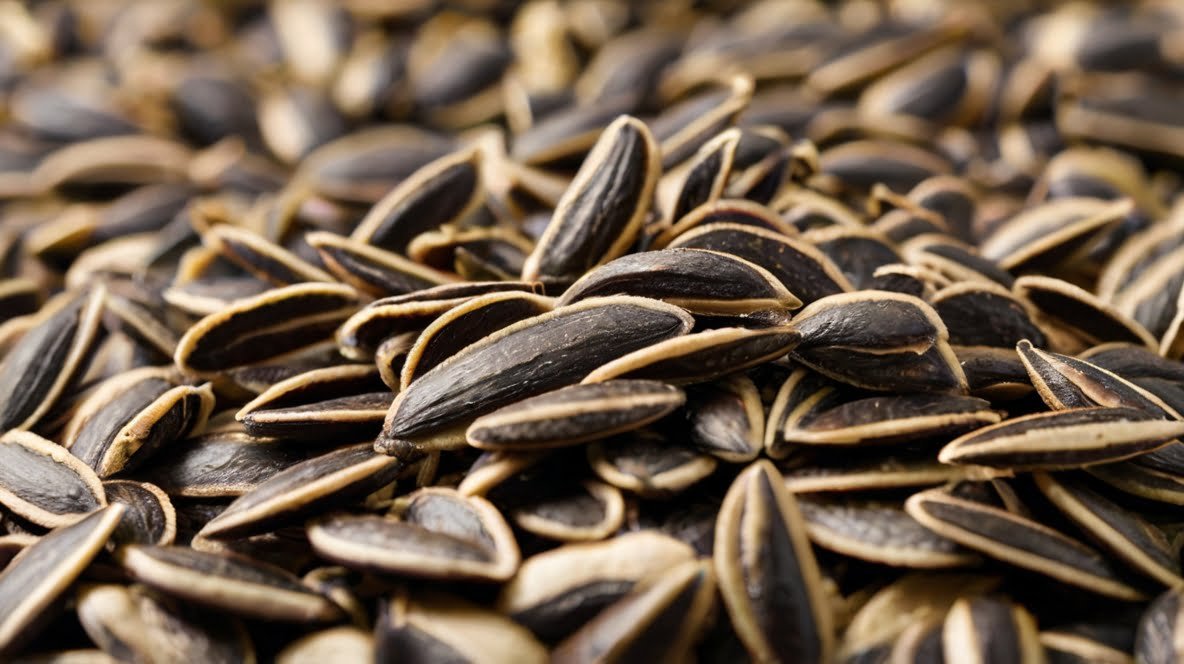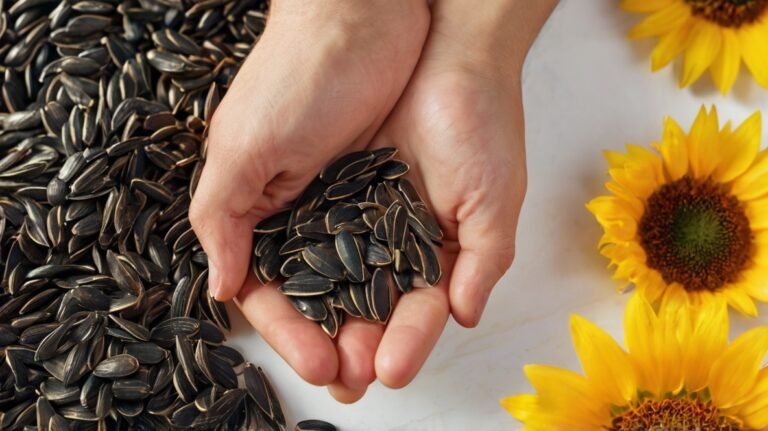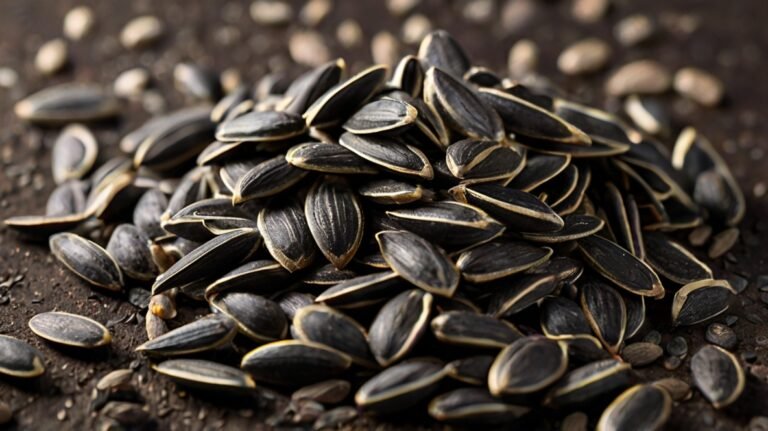Sunflower seeds are a popular snack and ingredient, known for their nutritional benefits and versatility. However, for some individuals, these tiny powerhouses can trigger allergic reactions. At XingYi Trading, we believe in providing not just premium products but also valuable information to our customers. Let's delve into the world of sunflower seed allergies, their symptoms, and how to manage them while still enjoying the benefits of seeds in your diet.

What Are Sunflower Seed Allergies?
Sunflower seed allergies occur when the immune system mistakenly identifies certain proteins in sunflower seeds as harmful substances. While less common than other nut or seed allergies, sunflower seed allergies can range from mild to severe.
Check out our Premium 363 Sunflower Seeds
Common Symptoms of Sunflower Seed Allergies
- Itching or tingling in the mouth
- Hives or skin rashes
- Swelling of lips, tongue, or throat
- Difficulty breathing
- Nausea or vomiting
- Anaphylaxis (in severe cases)
![Premium 363 Sunflower Seeds][]
Diagnosing Sunflower Seed Allergies
If you suspect a sunflower seed allergy, it's crucial to consult with an allergist. They may perform the following tests:
- Skin prick test
- Blood test for specific IgE antibodies
- Oral food challenge (under medical supervision)Explore our Premium Tongqing No. 6 Sunflower Seeds
Cross-Reactivity with Other Seeds and Nuts
Individuals allergic to sunflower seeds may also react to other seeds or nuts due to similar protein structures. Common cross-reactions include:
| Seed/Nut | Cross-Reactivity Risk |
|---|---|
| Pumpkin Seeds | High |
| Sesame Seeds | Moderate |
| Poppy Seeds | Moderate |
| Tree Nuts | Low to Moderate |
Managing Sunflower Seed Allergies
Living with a sunflower seed allergy requires vigilance, but it doesn't mean you have to miss out on nutritious seeds entirely. Here are some tips:
- Read food labels carefully
- Inform restaurants about your allergy when dining out
- Carry an epinephrine auto-injector if prescribed
- Explore alternative seeds and nuts that you're not allergic toTry our Premium 361 Sunflower Seeds
Safe Alternatives to Sunflower Seeds
If you're allergic to sunflower seeds but still want to enjoy the nutritional benefits of seeds, consider these alternatives:
- Pumpkin seeds
- Chia seeds
- Flax seeds
- Hemp seeds
Hidden Sources of Sunflower Seeds
Sunflower seeds can be found in many unexpected places. Be aware of these potential sources:
- Bread and baked goods
- Granola and trail mixes
- Vegetarian meat substitutes
- Sunflower oil (in various products)
- Bird feed (for those with severe allergies)Check our Sunflower Seeds Collection
Reading Food Labels: What to Look For
When shopping, be on the lookout for these terms on food labels:
- Sunflower seeds
- Sunflower oil
- Sunflower lecithin
- Sunflower protein
- "May contain traces of sunflower seeds"
Nutritional Alternatives to Sunflower Seeds
If you're looking for similar nutritional benefits, consider these alternatives:
| Nutrient | Alternative Sources | |
|---|---|---|
| Vitamin E | Almonds, Avocado, Spinach | |
| Magnesium | Pumpkin Seeds, Almonds, Cashews | |
| Selenium | Brazil Nuts, Fish, Eggs | |
| Healthy Fats | Olive Oil, Avocado, Chia Seeds | Explore our Pumpkin Seeds Collection |
Cooking and Baking Without Sunflower Seeds
Don't let a sunflower seed allergy limit your culinary adventures. Try these substitutions in recipes:
- Use pumpkin seeds instead of sunflower seeds in granola
- Substitute chia seeds in baked goods for added crunch
- Use olive oil instead of sunflower oil in dressings
- Try crushed nuts (if not allergic) for topping saladsCheck out our Premium Tongqing No. 6 Sunflower Seeds
Delicious Sunflower-Free Snack Ideas
- Roasted chickpeas
- Air-popped popcorn
- Veggie sticks with hummus
- Apple slices with almond butter (if not allergic to nuts)
Sunflower Seed Allergy in Children
Sunflower seed allergies can develop at any age, but they're often first noticed in childhood. Here's what parents should know:
- Introduce sunflower seeds gradually and watch for reactions
- Teach children to recognize sunflower seeds and products containing them
- Inform schools and caregivers about the allergy
- Prepare safe, allergy-friendly snacks for school and eventsTry our Premium 363 Sunflower Seeds
School Policies and Sunflower Seed Allergies
Many schools have policies in place to protect children with various allergies. These may include:
- Nut-free or seed-free zones in cafeterias
- Restrictions on bringing certain foods to school
- Staff training on recognizing and responding to allergic reactions
- Individual action plans for students with known allergies
Living with Sunflower Seed Allergies: Beyond Food
Sunflower seed allergies can impact more than just your diet. Be aware of these potential sources of exposure:
- Cosmetics and skincare products (may contain sunflower oil)
- Pet food and bird feed
- Some types of pillows or stuffed toys (may use sunflower seeds as filling)
- Certain medications or supplementsExplore our Premium 361 Sunflower Seeds
Traveling with a Sunflower Seed Allergy
When traveling, especially internationally, keep these tips in mind:
- Learn how to communicate your allergy in the local language
- Research common dishes that might contain sunflower seeds
- Pack safe snacks for the journey
- Carry a translated allergy card to show at restaurants
The Future of Sunflower Seed Allergy Research
While sunflower seed allergies are less common, ongoing research aims to better understand and treat them. Some promising areas include:
- Immunotherapy treatments
- Genetic modification to reduce allergenic proteins
- Improved diagnostic tools for more accurate testing
- Development of hypoallergenic sunflower seedsCheck our Sunflower Seeds Collection
Supporting Allergy Research and Awareness
At XingYi Trading, we're committed to providing high-quality products and supporting our customers' health needs. While we specialize in premium sunflower and pumpkin seeds, we understand the importance of allergy awareness. We encourage our customers to:
- Stay informed about allergen research
- Support allergy awareness initiatives
- Share experiences and resources with others affected by food allergies
- Always prioritize safety and consult with healthcare professionals
In conclusion,while sunflower seed allergies can present challenges, they're manageable with the right knowledge and precautions. At XingYi Trading, we're dedicated to providing premium seed products for those who can enjoy them, while also offering valuable information to all our customers. Remember, if you suspect a sunflower seed allergy, always consult with a healthcare professional for proper diagnosis and management.
Sunflower Seed Allergy vs. Intolerance: Understanding the Difference
It's important to distinguish between a sunflower seed allergy and intolerance. While both can cause discomfort, they have different mechanisms and potential risks.
Try our Premium Tongqing No. 6 Sunflower Seeds
Key Differences Between Allergy and Intolerance
| Aspect | Allergy | Intolerance |
|---|---|---|
| Immune System Involvement | Yes | No |
| Onset of Symptoms | Usually rapid | Can be delayed |
| Potential Severity | Can be life-threatening | Generally not life-threatening |
| Amount Required to Trigger | Even tiny amounts can cause reaction | Usually requires larger amounts |
![Premium Tongqing No. 6 Sunflower Seeds][]
The Role of Sunflower Seeds in a Healthy Diet
For those without allergies, sunflower seeds offer numerous health benefits. Let's explore why they're a valuable addition to your diet:
- Rich in vitamin E, an important antioxidant
- Good source of protein and healthy fats
- Contains minerals like magnesium and selenium
- May help reduce inflammation and support heart health
Explore our Premium 363 Sunflower Seeds
Nutritional Profile of XingYi Trading’s Premium Sunflower Seeds
Our sunflower seeds are carefully cultivated to ensure maximum nutritional value:
| Nutrient | Amount per 100g |
|---|---|
| Calories | 584 |
| Protein | 20.78g |
| Total Fat | 51.46g |
| Vitamin E | 35.17mg |
| Magnesium | 325mg |
| Selenium | 53µg |
Sunflower Seed Oil: A Common Allergen Source
Sunflower seed oil is widely used in cooking and food production. For those with sunflower seed allergies, it's crucial to be aware of its prevalence.
Check out our Sunflower Seeds Collection
Common Products Containing Sunflower Seed Oil
- Salad dressings and mayonnaise
- Baked goods and crackers
- Fried foods (used as cooking oil)
- Margarine and spreads
- Canned fish and vegetables
![Premium 363 Sunflower Seeds][]
Emerging Trends in Allergy-Friendly Products
As food allergy awareness grows, so does the market for allergy-friendly products. Here are some trends to watch:
- Increased labeling transparency
- Development of allergen-free alternatives
- Use of novel ingredients to replace common allergens
- Growing focus on cross-contamination prevention in manufacturing
Try our Premium 361 Sunflower Seeds
XingYi Trading’s Commitment to Quality and Safety
At XingYi Trading, we prioritize the quality and safety of our products:
- Rigorous quality control measures
- Clear and accurate labeling
- Dedicated production lines to minimize cross-contamination risk
- Regular testing for allergen presence
The Global Impact of Sunflower Seed Production
Sunflower seeds are a significant crop worldwide, with various uses beyond direct consumption. Understanding their importance can provide context for those managing allergies.
Explore our Pumpkin Seeds Collection
Major Uses of Sunflower Seeds Globally
- Edible oil production
- Bird and animal feed
- Biodiesel fuel
- Cosmetics and skincare products
| Country | Sunflower Seed Production (Million Metric Tons) |
|---|---|
| Ukraine | 15.2 |
| Russia | 15.1 |
| Argentina | 3.4 |
| China | 2.8 |
| Romania | 2.7 |
Sunflower Seed Allergy and Cross-Reactivity: What You Need to Know
Understanding potential cross-reactions can help those with sunflower seed allergies avoid other potential allergens.
Check out our Premium Tongqing No. 6 Sunflower Seeds
Common Cross-Reactive Seeds and Nuts
- Pumpkin seeds
- Sesame seeds
- Poppy seeds
- Mustard seeds
- Some tree nuts (less common)
![Premium 361 Sunflower Seeds][]
Conclusion: Navigating Sunflower Seed Allergies with Confidence
While sunflower seed allergies can be challenging, they're manageable with the right information and precautions. At XingYi Trading, we're committed to providing not only premium seed products but also valuable information to support our customers' health and well-being.
Remember, if you suspect a sunflower seed allergy:
- Consult with an allergist for proper diagnosis
- Read food labels carefully
- Explore safe alternatives to maintain a balanced diet
- Stay informed about the latest allergy research and management techniques
Explore our Sunflower Seeds Collection
By understanding sunflower seed allergies and taking necessary precautions, you can confidently navigate your dietary choices while still enjoying a variety of nutritious foods. Whether you're able to enjoy our premium sunflower seeds or need to explore alternatives, XingYi Trading is here to support your journey towards a healthy and satisfying diet.







